|
"WHO SO EVER WILL" SUNDAY
CULTURAL RESOURCES
Sunday, October 13, 2013
Michael R. Fisher, Jr., Guest Lectionary Cultural Resource Commentator
Michael is a PhD student in the Graduate Department of Religion at Vanderbilt University, and serves as an associate minister at Covenant United Church of Christ in Washington, DC.
Key Words: Diversity, Inclusivity, Judgment, Grace
I. Introduction/Historical Background
What does it mean to be a radically inclusive church? This is a question that African American churches across the country are exploring as they seek to exemplify the love of God and emulate the ministry of Jesus Christ. Yet, while radical inclusivity is a moral and ethical ideal—one that is reflective of God's love—African American churches struggle with completely embracing this concept in congregational life. While historically black churches in America functioned as public space for black people to come together, to fellowship, and to seek healing, solace, and spiritual care from the oppressive practices of white racists during American apartheid, unfortunately black churches themselves have been complicit in practices of discrimination and oppression within our own ranks.
Sexism, heterosexism, and homophobia—to name a few—have long been divisive social issues in the Black Church. While messages of inclusion, hospitality, and affirmation are preached in African American pulpits, the history of the Black Church is replete with examples that demonstrate less-than-hospitable attitudes toward difference, especially toward women in ministry and members of the gay community. But what does the gospel of Jesus Christ mean for black women clergy who historically and currently are discriminated against by both men and women in black congregations because they responded to God's call? Similarly, how does Jesus' ministry of inclusion inform our ethical response to persons who unapologetically and unashamedly identify as lesbian, gay, bisexual, transgender, or queer and Christian?
Nessette Falu, The African American Lectionary 2012 commentator, notes that the phrase "whosoever will" has historically been used by theologians and preachers in the sermonic moment.1 She contends that the phrase emerges from the book of Revelation 22:17 (NRSV):2 "The Spirit and the bride say, 'Come.' And let everyone who hears say, 'Come.' And let everyone who is thirsty come. Let anyone who wishes take the water of life as a gift." Thus, "Who So Ever Will" Sunday is an opportunity to bid all those who thirst and seek God's presence to come, regardless—or perhaps especially because—of how one identifies. Let us celebrate the diversity in our communities, for it is good and right to do so.
II. Etymology
Diversity: mid-14c., "quality of being diverse," mostly in a neutral sense, from O.Fr. diversité (12c.) "difference, diversity, unique feature, oddness:" also "wickedness, perversity," from L. diversitatem (nom. diversitas) "contrariety, contradiction, disagreement;" also, as a secondary sense, "difference, diversity," from diversus "turned different ways" (in Late Latin "various"), pp. of divertere (see divert).3
Inclusive: mid-15c., from M.L. inclusivus, from L. inclus-, pp. stem of includere (see include). Related: Inclusively; inclusiveness.4
III. Biographical Story
Reflecting on the life of Mary Eliza Church Terrell
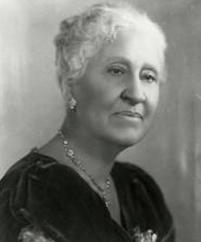
|
Mary Eliza Church Terrell was an African American woman who was an outspoken advocate and organizer for black women to become full citizens in the United States. Born to former slaves in 1863, Terrell dedicated herself very early in her professional career to black women's suffrage. Terrell gave lectures across the country on the importance of voting rights because she believed that it was absolutely essential not only for black women's elevation, but for the black race as a whole.5
Terrell accomplished much during her expansive career. She became president of the National Association of Colored Women, and advocated with both black and white organizations about women's equality issues. When the NAACP was founded in 1909, Terrell was listed as one of the charter members.6 |
After the 19th amendment to the US constitution was ratified in 1920 that prohibited women from being denied the right to vote, Terrell shifted her attention to other civil rights issues. She became the first black member of the National Association of University Women in the late 1940s and diligently worked to desegregate restaurants in the nation's capital the following decade. A major advocate in the women's suffrage movement, Marry Terrell believed that women belonged to the only group in the United States whose oppression was based both in sex and race.7 Thus, Terrell spent her life organizing and lecturing around the country in the struggle to bring equality and inclusion to African American women's lives.
For Terrell, inclusivity, one of the themes of "Who So Ever Will" Sunday, was a driving principle for the women's suffrage agenda as they fought to procure the same privileges of citizenship enjoyed by their white male counterparts. As we celebrate this moment on the calendar, let us remember women like Mary Eliza Church Terrell, whose life provides an example of African American advocacy and activism for true equality, because in the eyes of God we are all equal.
IV. Story or Illustration
Black Church Congregations with Open Arms?
As a Black Gay Christian, I realized that, as a community, GLBT people cannot afford the luxury of running and becoming members of the one or two, Black GLBT inclusive churches in our cities. We are too dynamic, complex, creative, and colorful a people to be relegated to serving God within the confines of only "safe havens."8
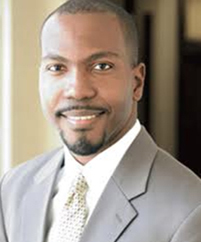
|
Herndon L. Davis writes in an essay entitled "Standing Up to the Black Church," published in Spirited: Affirming the Soul and Black Gay/Lesbian Identity, about the need for gay, lesbian, bisexual, and transgender (GLBT) persons to challenge the vitriolic homophobia that runs rampant in the majority of black churches in America. For Davis, this realization came after some inward reflection initiated after a fiery homophobic sermon by his local church pastor. Preaching a message more reflective of hate than the love of God, Davis recalls how his pastor told the congregation that homosexuality was a sin so great that God will ultimately give up on those who were unrepentant of such sin.9 Having been in church his entire life and in a place of comfort with his sexuality and with his relationship with God, the hurtful experience motivated him to reevaluate his decision to be a member of his current church or whether it would be better to find another church home that was more affirming of who he was as a person. |
God spoke to Herndon and instructed him to remain a member of the church. After much prayer and meditation, he realized that all churches should be safe havens for God's children regardless of their sexual orientation.10 Davis realized what the majority of black churches have yet to learn. There should be no reason why GLBT persons feel as though they have to hide a part of their identity in order to be accepted by black church folk. "Whosoever will" principally means offering an extravagant welcome to all people regardless of race, ethnicity, gender, sexuality, age, class, creed, theology, or otherwise. Black churches, therefore, should be spaces where people can unashamedly be both Christian and "other," whatever that otherness entails. "Who So Ever Will" Sunday provides an opportunity to recognize and celebrate the sacredness in all of us and bids us to communion with one another and with God in celebration of life. Thank God for our LGBT brothers and sisters who have the courage to not hide who they are and yet stay in homophobic churches and hopefully change them for the better.
V. Songs That Speak to the Moment
"Just As I Am" is one of the classic hymns of the black church. It speaks to the notion that one is able to seek after God, regardless of background, because God is willing and able to receive us. "Just as I am, without one plea, but that thy blood was shed for me," the hymn writer begins in the first stanza, recognizing the sacrifice that Jesus made on the cross on behalf of humanity. She continues, "and that thou bidst me come to thee, O Lamb of God, I come, I come." The author closes the first stanza of the song heeding the divine call to come. Regardless of where we have been on life's journey, regardless of how we may identify, because of Jesus' sacrifice, we have an open invitation to "come."
Just as I Am
by Charlotte Elliott
Just as I am, without one plea,
but that thy blood was shed for me,
and that thou bidst me come to thee,
O Lamb of God, I come, I come.
Just as I am, and waiting not
to rid my soul of one dark blot,
to thee whose blood can cleanse each spot,
O Lamb of God, I come, I come.
Just as I am, though tossed about
with many a conflict, many a doubt,
fightings and fears within, without,
O Lamb of God, I come, I come.
Just as I am, poor, wretched, blind;
sight, riches, healing of the mind,
yea, all I need in thee to find,
O Lamb of God, I come, I come.
Just as I am, thou wilt receive,
wilt welcome, pardon, cleanse, relieve;
because thy promise I believe,
O Lamb of God, I come, I come.
Just as I am, thy love unknown
hath broken every barrier down;
now, to be thine, yea thine alone,
O Lamb of God, I come, I come.11
I Know Who I Am
by Israel Houghton 
[Chorus]:
I know who I am
I know who I am
I know who I am
I am yours
I am yours (x2)
And you are mine
Jesus you are mine
You are mine
Jesus you are mine
[Verse]:
I was running, and you found me
I was blind, and you gave me sight
You put a song of praise in me
I was broken, and you healed me
I was dying, and you gave me life
Lord, You are my identity
I know, I know (x2)
[Bridge]:
I am forgiven, I am your friend
I am accepted, I know who I am
I am secure, I'm confident
That I am loved, I know who I am
I am alive, I am set free
I belong to you and you belong to me
Whoa oh oh, whoa oh oh...12
Although "Whosoever Will" is limited by its gender exclusive language for God and human beings, its message should still be taken seriously. The song talks about the fact that God gives all an opportunity to draw close to God, just as we are. All who labor, are weary or wounded, God bids us to come with open arms, and is waiting to receive us. In its truest sense, such is the meaning of the phrase, "whosoever will."
Whosoever Will
by Marvin Sapp 
[Chorus]:
Whosoever will
God is waiting still
Draw nigh to Him
Be cleansed within (Repeat)
[Verse 1]:
God has given us all
A chance to come just as you are
And He's given us time to make up our mind
Who we will serve
He has heard our cry
He is waiting; He's standing right by
Whosoever will
[Verse 2]:
Time is drawing nigh
Won't hurt to try, Please heed His call
Though we're here today
Who's to say tomorrow will ever come
If you come unto Him
He will no wise cast you out
Whosoever will
[Bridge]:
With open arms, He's waiting to receive you
Why won't you come?just as you are.
This is the day; Now is the acceptable time
You ought to choose Him today, or you might be left behind
Whosoever will
Whosoever will, Whosoever will, God let him come (x4)
God, let him come (x3)
All ye who are weary, let him come
All ye that labor, let him come
God, let him come
Whosoever will, let him come.
All ye who are weary, let him come.
All ye who are wounded, let him come.13
VI. Making It a Memorable Learning Moment
The themes of "Who So Ever Will" Sunday, e.g., inclusion, diversity, freedom from judgment, etc., are such that they may require some unpacking for a robust conversation to occur. Thus, framing the dialogue in a manner that resonates with the core values and faith of your congregation is important. Below are some activities that may help frame conversations with members as it relates to "Who So Ever Will" Sunday.
Bible Study on Inclusivity
Rather than have a Bible study on the topic of homosexuality (which can be quite divisive and typically quite limiting), consider focusing the study on biblical examples of radical inclusivity. This approach prevents the conversation from being consumed with talk of homosexuality as sin, and, or what people claim the Bible says about the topic. Approaching the biblical text from the standpoint of inclusivity may assist in helping parishioners to approach the topics of sexuality, homosexuality, sexism, and race differently.
Book Discussion
Book discussions on GLBT-themed works are a useful way to help individuals see different perspectives from their own. It is also an excellent method for facilitating conversation on a book other than the Bible. These discussions can occur at your church, in the home of a member, during a retreat, at a community center, etc.
Panel Discussion
Panel discussions are one of several approaches to teaching about a subject or theme. They should present various viewpoints about a particular topic that can be advantageous for the audience. Holding a panel with people who are viewed as "different," members of the GLBT community, for example, or women in ministry, is a potential way to help people think differently by hearing a different perspective from their own. This method, however, must be approached with care and sensitivity. One must be mindful of social dynamics. Panelists should not feel as though they are being attacked because of their perspective. Panel discussions can be held in your church and in venues away from your church.
Movie or Film Documentaries
Showing movies or film documentaries on specific subject areas is another method of teaching that can be useful in engaging in dialogue about diversity, inclusivity, and respecting and honoring difference. There are a number of films currently available that examine the experiences of subjugated individuals and document their journeys. See, for example, Gun Hill Road (an independent film about a transgender youth), Pariah (a film about an African American lesbian girl's journey in New York City), and Brother Outsider: The Life of Bayard Rustin (a film about the life of Bayard Rustin and his years of activism during the Civil Rights Movement).
VII. Audio Visual Aids
To aid in helping hearers remember the morning sermon and the message of the text(s), one may want to put in the bulletin/order of service, use on projector screens, or set up in various locations around the sanctuary images of human diversity. Pictures of multiracial communities could be inserted into the bulletin or placed on picture boards directly in front of the pulpit. Use an audio-visual clip from the DVD film Brother Outsider: The Life of Bayard Rustin.
VIII. Books to Enhance Your Understanding of themes of "Who So Ever Will" Sunday
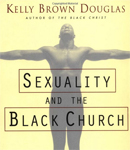 |
Douglas, Kelly Brown. Sexuality and the Black Church: A Womanist Perspective. Maryknoll, NY: Orbis Books, 1999. |
|
|
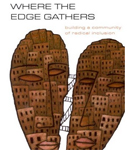 |
Flunder, Yvette A. Where the Edge Gathers: Building a Community of Radical Inclusion. Cleveland, OH: The Pilgrim Press, 2005. |
|
|
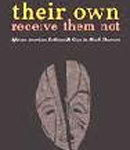 |
Griffin, Horace I. Their Own Receive Them Not: African American Lesbians & Gays in Black Churches. Cleveland, OH: The Pilgrim Press, 2006. |
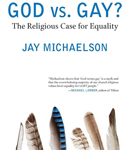 |
Michaelson, Jay. God vs. Gay?: The Religious Case for Equality. Boston, MA: Beacon Press, 2011. |
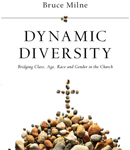 |
Milne, Bruce. Dynamic Diversity: Bridging Class, Race, Age, and Genderin the Church. Downers Grove, IL: Intervarsity Press, 2007. |
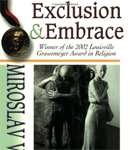 |
Volf, Miroslav. Exclusion and Embrace: A Theological Exploration of Identity, Otherness and Reconciliation. Nashville, TN: Abingdon Press, 1996. |
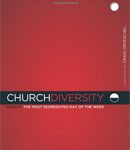 |
Williams, Scott. Church Diversity: Sunday, the Most Segregated Day of the Week. Green Forest, AR: New Leaf Press, 2011. |
Notes
1. Falu, Nessette. "'Who So Ever Will' Sunday," 2012, The African American Lectionary. Online location: http://www.theafricanamericanlectionary.org/PopupCulturalAid.asp?LRID=291 accessed 10 December 2012.
2. Ibid.
3. Harper, Douglas. Online Etymology Dictionary. Online location: http://www.etymonline.com (accessed 10 December 2012).
4. Ibid.
5. Online location: http://www.nwhm.org/online-exhibits/rightsforwomen/Terrell.html.
6. Online location: http://blackhistorynow.com/mary-eliza-church-terrell.
7. Online location: http://www.nwhm.org/online-exhibits/rightsforwomen/Terrell.html.
8. Herndon L. Davis, "Standing Up to the Black Church," in G. Winston James and Lisa C. Moore, eds. Spirited: Affirming the Soul and Black Gay/Lesbian Identity. Washington, D.C.: Redbone Press, 2006.
9. Ibid.
10. Ibid.
11. "Just as I Am." By Charlotte Elliot. African American Heritage Hymnal. Chicago, IL: GIA, Publications, 2001. #344
12. "I Know Who I Am." By Israel Houghton. Houghton. A Deeper Level. New York, NY: Integrity Music, 1997.
13. "Whosoever Will." By Marvin Sapp. Grace and Mercy. New York, NY: Word Entertainment, 1997.
|

